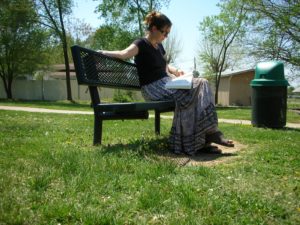Find a special place in nature to do something you enjoy: read a book, play a musical instrument, play a game, draw a picture.
Spending time in nature fosters awareness of environmental issues. Falling in love with one spot in nature often leads to care of all creation.
Reflect on your experience:
- Journal or draw a picture about your time in nature
- I wonder how this time in nature brought you closer to creation?
- I wonder where you saw, heard, or felt God?
- Share your experience on Social Media using #Episcopal #30Days

